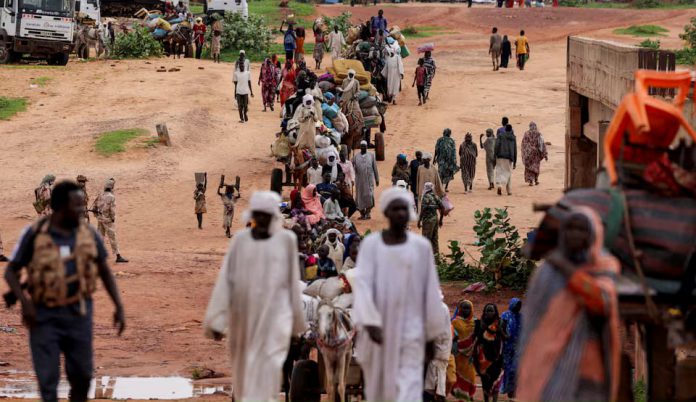Sudan’s Rapid Support Forces (RSF) fighters have said they will work with a planned new government to oversee the territories they control.
This move by the RSF has made towards a partition of the country after 20 months of civil war.
The RSF has been fighting the national army since April last year and now controls swathes of central and western Sudan, including most of the capital, Khartoum, and the Darfur region, its traditional base.
Any new administration ruling that area would be a challenge to the internationally recognised and army-led national government which was forced out of Khartoum last year and now operates on the Red Sea coast in Port Sudan.
A group of civilian politicians and armed group leaders have agreed to set up what they describe as a “peace government”, members of the group told Reuters this week.
They said it would be civilian-led, independent of the RSF and set up to replace the government in Port Sudan which they accused of prolonging the war.
Three senior Sudanese political sources told Reuters this week that the RSF had worked with the politicians to form the government.
The RSF said it had no current links to the government and would work with but not control the planned administration.
“We in the RSF will only carry out the military and security role, but governing will be undertaken by civilian forces independently,” it added in its statement to Reuters last week Sunday.
There were no details on when any such administration might start and how it would choose representatives, govern or raise funds. Members of the group said it would be based in Khartoum.
The government in Port Sudan and the army – which controls the north and east of the country and is regaining ground in the centre – did not immediately respond to messages seeking comments.
In the past, both have said they are the sole national power and have accused the RSF and its backers of seeking to destroy the country.
Western diplomats told Reuters they were aware of discussions about a new administration, and said that any institution that emerged would be controlled by the RSF.
“I see no one rushing to recognise them,” one Western diplomat told Reuters on Monday.
“The biggest weakness of the RSF is no functioning chain of command. All the atrocities we see, how do we see that in a government?”












